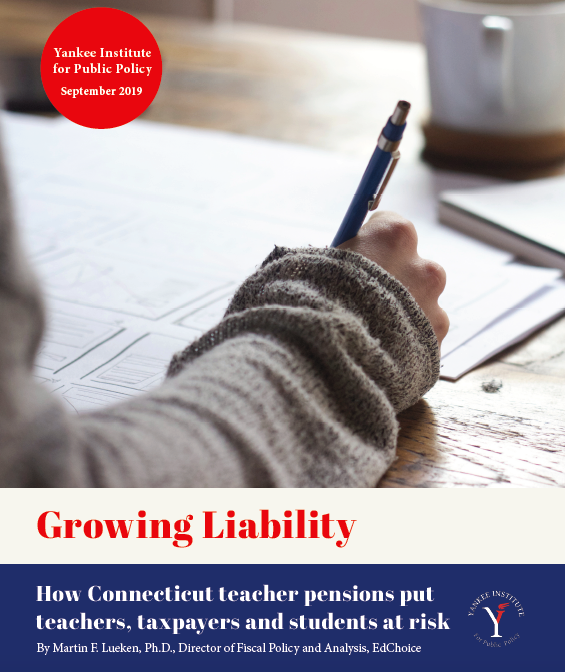Yankee Letter
Across Connecticut, the teacher pension system is not working for teachers, taxpayers or children. And it has the potential to fail current and future retirees if it is not equitably and carefully reformed – soon.
Many of us are aware of how the system already strains taxpayer resources; what’s less well known is that the system doesn’t work for the majority of teachers, either. And worst of all, the system is diverting important resources away from the children who desperately need them.
Consider:
- The pension system is underfunded by $31,300 for each K-12 student.
- The state has only 52 cents for every dollar needed to fund the retirement system.
- The pension debt has grown by five times since 2000, after netting out the effects of inflation.
- Pension liabilities keep teacher salaries lower than they otherwise might be.
- In 2000, the state contributed about $369 per student into the pension system; by 2018 that number had ballooned to $2,400 per student. This represents 12% of the total resources directed to public school classrooms.
- Teachers who leave the profession before their 10th year receive no benefit whatsoever from the pension system – nor have they earned any Social Security benefits from those years of work.
- The lack of portability of teacher retirement benefits penalizes mobility and partial careers. Only 30% of teachers stay in the system long enough to receive benefits that are close to peak pension wealth accrual.
It is time to enact true pension reform for teachers. Policymakers should consider the skewed incentives in the current system that penalize both taxpayers and teachers. This paper provides common-sense solutions that would produce a pension system that is fair, sustainable, and secure, and works for teachers, taxpayers and children.
**For the full study including charts and graphs, please download the PDF**


arthur
October 20, 2019 @ 11:08 am
with the average salary over 72,000 in 2016 and I think it over 80,000 now it is hard to see how the pension is hurting salaries. What would they be otherwise, 72000+ salary in addition to a generous pension make it a great career for teachers (if not taxpayers)
$72,013
According to the NEA, Connecticut has the fifth highest average salary for teachers in the country at $72,013 in 2016. The average salary increased by .4 percent in 2016 from the year before.
will david
October 28, 2019 @ 1:43 pm
long past time to have ended the pension system.. espevially if you are rolling healthcare into it. rwtirement should be based on federal tsp program. where its largely privately held and the employwr puts in a montjly matching depending on owners deductilns up to .05 percent.. encourages self sufficiency. upsp is required to fund retirement years in advance..and has…fir years to come..by law. should be the same for all public and private.. pensions are only a fractional portion of their retirement. in fact usps is the ONLY employer public OR private required by law to do it. time to make that mainstream…MAKE RETIREMENT SAVINGS..THE PERVIEW OF THE RECIPIENT..NOT THE TAXPAYER
Thad Stewart
November 3, 2019 @ 6:37 am
When are “We the People” going to hold lawmakers accountable for their fiscally irresponsible policies? Enough is enough already. Show me one middle class taxpayer who would not like to spend unlimited amounts of other people’s money.